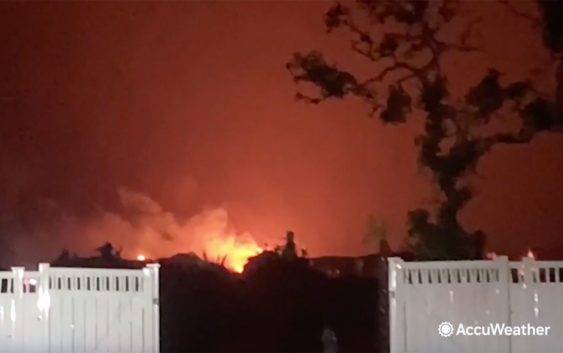- Hays County emergency alerts cause confusion during Tuesday's wildfires
- Tuesday's wildfires scorched more than 500 acres in south Bexar County
- How big were this week's wildfires in Bexar County?
- Crews contain wildfire in southeast Williamson County
- Wildfire contained to 300 acres in northwest Matagorda County
What you need to know about utilities and house fires during, after a hurricane

As Tropical Storm Isaias struck Ocean Isle Beach, North Carolina, earlier this summer, several homes and cars were severely damaged or destroyed by fires, with some fires starting more than a day after the storm made landfall.
“We’re starting to see fires start due to electrical components,” Brian Smith with Back to Normal Restoration told AccuWeather. “I removed 45 golf carts from out under structures and disconnected the batteries on those. Out of the 45, 22 of them, the batteries were hot and sizzling.”
In an interview with AccuWeather, Don Griffin with American Property Casualty Insurance Association said those fires started by utilities and other electrical components should serve as an important reminder during hurricane season.
Griffin advised homeowners, “If they know that something is coming, make sure they turn off all the utilities. For the gas, like a gas stove, I’d light it, turn it on and let it run out of whatever might be stored in the pipes. Same with the water.”
Whether you evacuate or stay and ride out the storm, Griffin said turning off utilities can reduce the risk of starting or spreading fire. After the storm, let professionals inspect your property before turning utilities back on.
Click here for the latest tropical weather news.
MORE HURRICANE & SEVERE WEATHER EXPLAINERS:
Copyright © 2020 WTVD-TV. All Rights Reserved.